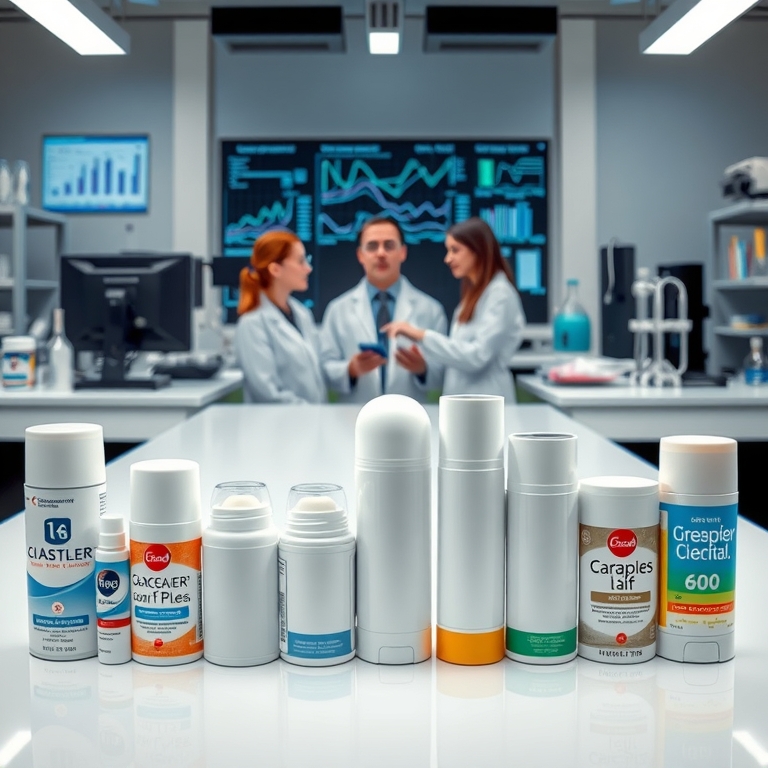In a startling development that has sent ripples through the consumer goods industry, the U.S. Food and Drug Administration (FDA) has issued a recall for several popular deodorant brands due to the presence of potentially harmful chemicals. This action, which underscores the regulatory body’s commitment to consumer safety, highlights ongoing concerns about product safety in the personal care industry and raises questions about the oversight processes that are supposed to ensure the well-being of consumers.
The recall specifically targets a range of deodorants found to contain elevated levels of benzene, a chemical compound classified as a human carcinogen by health authorities worldwide. Benzene is known to cause harmful effects when humans are exposed to it over extended periods, with the potential for increased cancer risk and other serious health issues. The presence of such a compound in everyday consumer products has understandably sparked alarm among consumers and industry stakeholders alike.
The deodorants in question are widely recognized and trusted brands, which makes this recall particularly significant. Consumers have long relied on these products, believing them to be safe and effective in managing personal hygiene. The FDA’s findings have thus prompted a wave of concern, prompting consumers to re-evaluate the safety of other personal care items in their daily routines. For the brands involved, this recall represents not only a significant reputational challenge but also a potential financial blow as they grapple with the implications of pulling products from the shelves and addressing consumer trust.
In response to the FDA’s announcement, companies involved in the recall have issued statements expressing their commitment to consumer safety and pledging to cooperate fully with regulatory agencies. These companies have initiated investigations to determine how benzene, which is not a standard ingredient in deodorant production, came to be present in their products. Initial assessments suggest that the contamination may have occurred during the manufacturing process, possibly due to impurities in raw materials or inadequate quality control measures. The industry is now under pressure to enhance its safety protocols and ensure that such lapses do not recur in the future.
This incident has reignited a broader conversation about the regulation of personal care products, which are subject to less stringent oversight compared to pharmaceuticals. Unlike medicines, personal care products do not require pre-market approval by the FDA, although they must be proven safe for consumer use. This regulatory framework places the onus on manufacturers to ensure product safety, relying on post-market surveillance and consumer reports to identify potential issues. Critics argue that this system is reactive rather than proactive, allowing potentially harmful products to reach consumers before safety concerns are addressed.
In light of the recall, consumer advocacy groups are calling for tighter regulations and more rigorous testing of personal care products before they reach the market. They argue that the current system leaves too much room for error and that consumers should not serve as unwitting test subjects for product safety. These groups are advocating for reforms that would bring personal care product oversight more in line with the stringent standards applied to pharmaceuticals, including mandatory safety testing and clearer labeling requirements.
For consumers, the recall serves as a stark reminder of the importance of vigilance when it comes to personal care products. Many have already begun scrutinizing ingredient lists more closely and seeking out products that prioritize transparency and safety. This shift in consumer behavior is likely to drive demand for products that are marketed as free from harmful chemicals, organic, or otherwise safe, as consumers seek to mitigate potential health risks.
The recall also presents an opportunity for innovation within the personal care industry. Brands that can adapt quickly to these changing consumer expectations by prioritizing safety and transparency have the potential to gain a competitive edge. This could lead to increased investment in research and development of safer alternatives, as well as more robust supply chain management practices to prevent contamination.
As the affected brands work to restore consumer trust and regulatory agencies consider potential reforms, the recall serves as a critical reminder of the responsibilities companies bear in safeguarding consumer health. It also highlights the ongoing challenges faced by regulatory bodies tasked with ensuring that products on store shelves do not pose a risk to public health. Moving forward, it will be crucial for all stakeholders—manufacturers, regulators, and consumers—to collaborate in fostering a marketplace where safety is paramount.
Ultimately, the FDA’s decisive action in recalling these deodorants underscores the importance of vigilance and accountability in the consumer goods sector. As the investigation into the source of contamination continues, the industry as a whole stands at a crossroads, with the opportunity to learn from this incident and implement changes that will benefit consumers in the long run. The recall may serve as a catalyst for positive change, prompting a reevaluation of current practices and encouraging the development of safer, more reliable products that meet the evolving needs of today’s informed consumers.

Leave a Reply